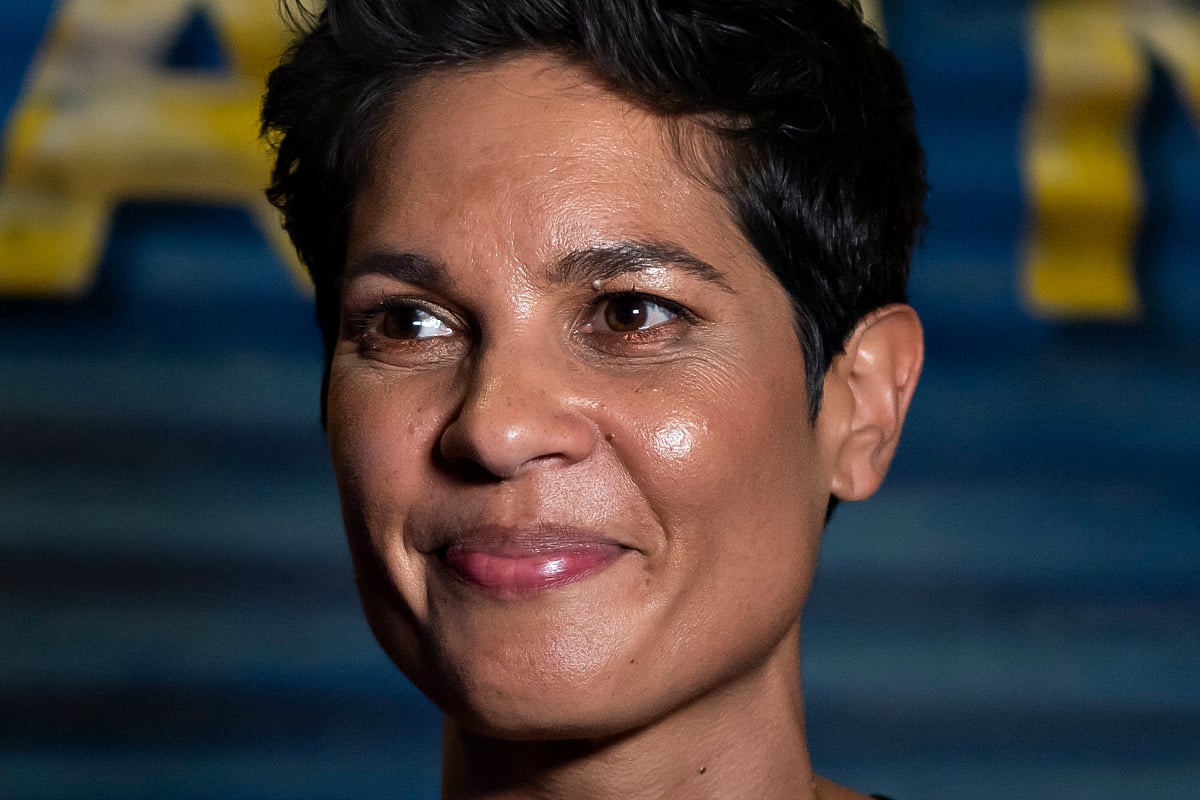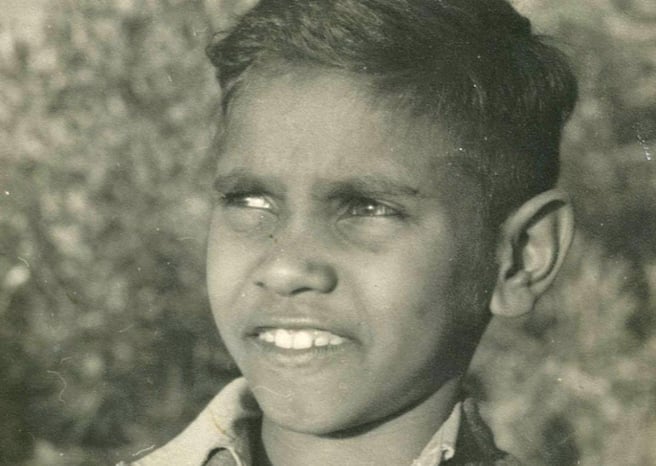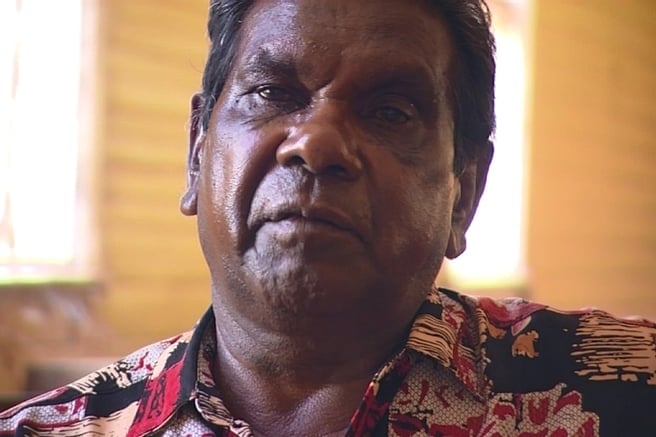
Aboriginal and Torres Strait Islander viewers are warned that the following contains images and voices of deceased persons.
Narelda Jacobs' father, Cedric, was nine years old when he last saw his parents.
It was the early 1950s. The Whadjuk Nyoongar boy and his two younger brothers were playing in a Western Australian vineyard where their mother and father had taken seasonal work picking grapes.
A car pulled up.
With their parents at the far end of the vineyard, the boys were bundled into the vehicle and sped away to a new life at Mogumber Methodist Mission; snatched — stolen — from the people who loved them most by a government that presumed it knew better.
Speaking to Mamamia's No Filter podcast, Narelda, a broadcast journalist and co-host on morning talkshow Studio 10, said Cedric told her about the day a magistrate decided his and his siblings' fate.
"My dad remembered hearing his mother scream," the 44-year-old said. "She wasn't even let in the courtroom to be able to argue the point, [to ask] 'Where are they going? Why are you taking them?'"


